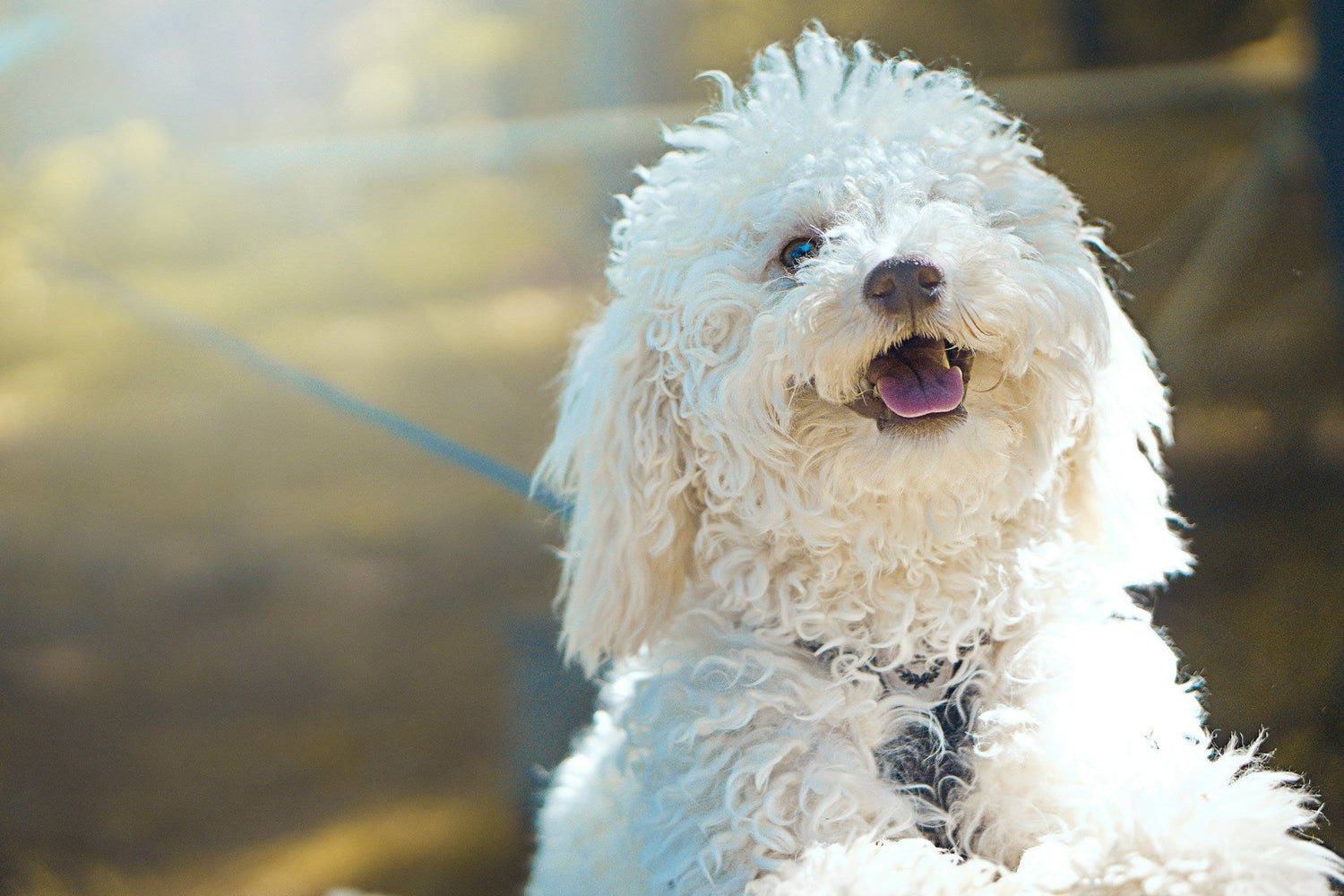A dog's stool typically ranges from brown to dark brown, with variations in consistency. So it’s no wonder that encountering white dog poop can be alarming for any pet owner. Unfortunately, that alarm might be warranted—this unusual color often signifies an underlying health issue that requires attention.
Common Causes of White Dog Poop
Several factors can contribute to the appearance of white in your dog's stool.
Dietary Factors
A diet overly rich in calcium can lead to pale or white stools. This is primarily due to the interference of excess calcium with the liver's bile production. Bile is a crucial substance for fat digestion and gives stool its characteristic brown color.
Feeding dogs large amounts of raw bones, particularly those from poultry or small animals, can significantly increase calcium intake. Over-supplementation with calcium, either through vitamins or prescribed medications, can also disrupt bile production.
While nutritionally balanced raw food diets can be beneficial, they often include bones as a calcium source. If not carefully monitored, this can lead to an excess of calcium and subsequent changes in stool color.
Pancreatic or Liver Issues
Pancreatitis is a condition that involves inflammation of the pancreas, an organ vital for producing digestive enzymes. When the pancreas is inflamed, it may not produce enough of these enzymes, leading to poor fat absorption. This can result in pale, greasy stools, often referred to as "steatorrhea."
The liver also plays a crucial role in bile production. If the liver is malfunctioning due to liver disease, it may not produce enough bile, resulting in pale or clay-colored stools.
Intestinal Parasites
While they don’t directly cause white stools, tapeworm infections can sometimes lead to the presence of misleading white worm segments in the feces. These segments, resembling grains of rice, can be easily mistaken for white particles in the stool.
Other Potential Causes of White Dog Poop
Certain bacterial infections can disrupt your pup’s normal digestive process, leading to changes in stool color and consistency. Occasionally, dogs may consume indigestible materials such as paper, plastic, or other foreign objects. These can pass through the digestive tract and appear as white or discolored matter in the stool.
Recognizing Other Symptoms
Observing your dog for any accompanying symptoms is crucial when dealing with white dog poop. These symptoms can provide valuable clues to the underlying cause.
Frequent or persistent vomiting can be a sign of pancreatitis, liver disease, or other digestive issues. Loose or watery stools can indicate various problems, including intestinal parasites, bacterial infections, or dietary indiscretion. A lack of energy or decreased activity levels can be a symptom of several underlying health conditions. A decreased interest in food can be a sign of illness or discomfort. And unexplained weight loss can be a serious concern, warranting immediate veterinary attention.
When to Consult Your Veterinarian
If you consistently notice white dog poop, especially if it's accompanied by other symptoms, it's essential to consult your veterinarian promptly. They can perform a thorough physical examination, run diagnostic tests (such as blood work, fecal exams, and imaging studies), and accurately determine the underlying cause of the white stools.
Based on the diagnosis, your veterinarian can also recommend appropriate treatment options, which may include dietary changes, medications, or other interventions. Regular check-ups with your veterinarian can help monitor your dog's health and prevent future occurrences of white stools.
Measures to Prevent White Dog Poop
While not all cases of white dog poop can be prevented, taking certain precautions can minimize the risk. Ensure your dog receives a balanced and nutritionally complete diet appropriate for its age, breed, and activity level, and avoid excessive calcium intake from sources like bones or supplements.
Follow your veterinarian's recommendations for regular deworming to prevent parasite infections. Prevent your dog from ingesting foreign objects by keeping your home clean and free of potential hazards. Finally, schedule regular check-ups with your veterinarian for routine health examinations and to address any concerns promptly.
Prioritizing Canine Health and Hygiene
Observing white dog poop should be a cause for concern, as it often indicates an underlying health issue. By carefully monitoring your dog's diet, observing for other symptoms, and consulting with your veterinarian, you can address the root cause and ensure your dog's well-being.
For responsible pet owners, maintaining a clean and hygienic environment is one way to help prevent white dog poop and other health problems. Happily, PawPail offers a convenient and eco-friendly solution for responsible dog waste disposal. By using PawPail's pet waste management products, you can effectively contain and dispose of dog poop, minimizing the spread of bacteria and parasites and promoting a healthier space for both you and your pup.



